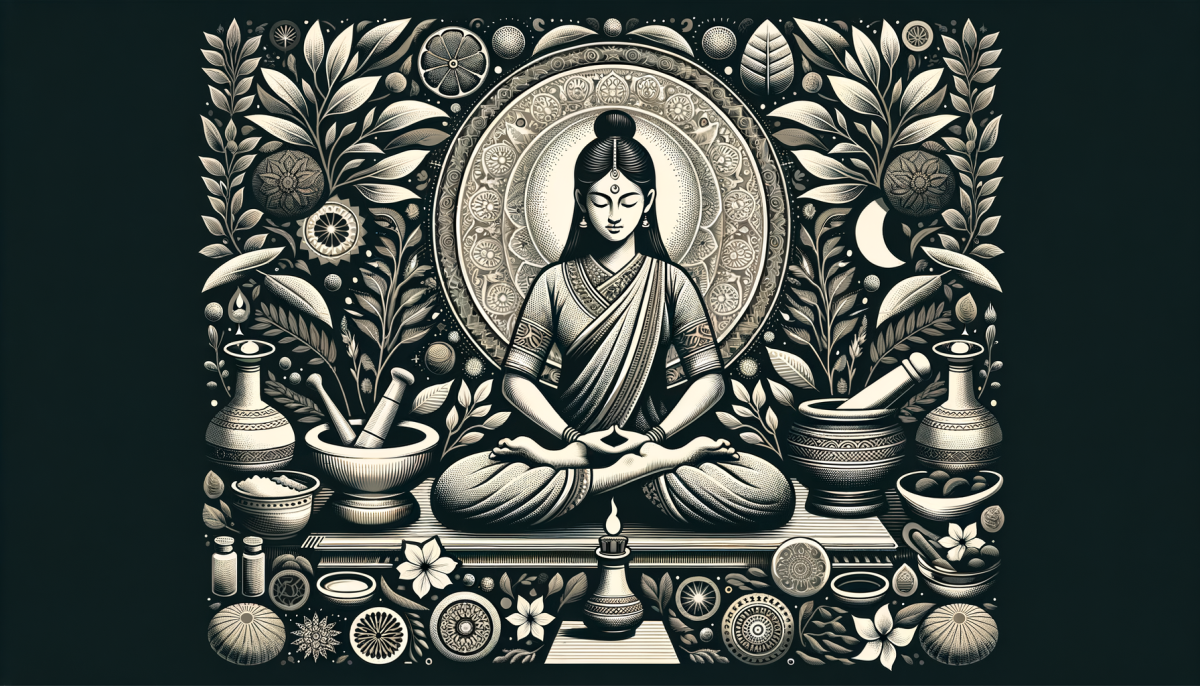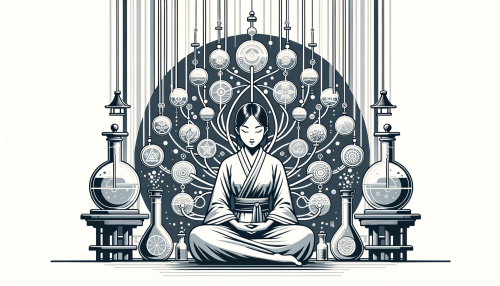Introduction
Immerse yourself in the profound realm of Ayurveda, an age-old system of holistic healing that has its roots deeply embedded in the Indian subcontinent. This ancient wisdom, brimming with timeless practices and natural remedies, offers a unique pathway to modern wellness. It’s a journey that transcends the boundaries of conventional medicine, delving into the intricate interplay of mind, body, and spirit. Ayurveda’s holistic approach, which emphasizes prevention over cure, is a testament to its enduring relevance in our fast-paced, stress-filled modern lives. This article serves as a gateway to understanding the essence of Ayurveda, illuminating its principles, practices, and potential for fostering a healthier, more balanced lifestyle.
Ayurveda Basics

Ayurveda, a time-honored medical system, has its roots deeply embedded in the Indian subcontinent. This ancient wisdom, dating back to over 5000 years, is not merely a system of healing, but a way of life that aims to bring about the perfect balance of the entire personality – body, mind, and spirit. Ayurveda is based on the premise that the universe is made up of five elements: air, fire, water, earth, and ether. These elements are represented in humans by three “doshas”, or energies: Vata, Pitta, and Kapha. When any of the doshas accumulate in the body beyond the desirable limit, the body loses its balance, and disease manifests. Hence the aim of Ayurveda is to maintain this equilibrium.
The principles of Ayurveda are an invaluable link to understanding, preventing, and treating diseases. It emphasizes prophylactic and curative therapies along with various methods of purification and rejuvenation. Ayurveda is more than a mere healing system; it is a science and art of appropriate living which helps to achieve longevity. It can guide every individual in the proper choice of diet, living habits and exercise to restore balance in the body, mind, and consciousness, thus preventing disease from gaining a foothold in the system.
Ayurveda is not just about its medicinal aspects; it’s a manual for survival, encompassing the whole of life. It provides guidelines on ideal daily and seasonal routines, diet, behavior, and the proper use of our senses. Ayurveda reminds us that health is the balanced and dynamic integration between our environment, body, mind, and spirit. It offers a body of wisdom designed to help people stay vibrant and healthy while realizing their full human potential.
In essence, Ayurveda has been in existence since the Indus Valley Civilization. The fundamental objective of Ayurveda is to maintain health and wellness of people not by just treating the symptoms of diseases but by addressing the root cause, its relationships with our natural environment, and the balance between all conceivable entities.
Modern Wellness Applications
In the contemporary world, Ayurveda’s ancient wisdom has found a significant place in promoting wellness and health. Its principles, deeply rooted in nature and the understanding of the human body, have been applied to modern wellness practices, offering a holistic approach to health.
The application of Ayurveda in modern wellness is multifaceted. It is not merely a system of healing, but a way of life that encourages the pursuit of a balanced lifestyle. Ayurveda’s emphasis on prevention over cure resonates with the modern wellness movement’s focus on maintaining health through balanced nutrition, regular exercise, and stress management. The ancient practice of yoga, a cornerstone of Ayurveda, has gained global popularity for its physical and mental health benefits. Ayurvedic dietary principles, too, have found their way into modern nutrition plans, promoting the consumption of seasonal, local, and fresh produce for optimal health.
Moreover, Ayurveda’s personalized approach to health is another aspect that aligns with modern wellness trends. Recognizing that each individual is unique, Ayurveda categorizes people into different body types or ‘doshas’, and recommends lifestyle and dietary practices based on these doshas. This personalized approach is mirrored in modern wellness trends that advocate for individualized health plans.
Furthermore, Ayurveda’s use of natural herbs and spices for healing has been incorporated into modern wellness practices. Turmeric, for instance, a staple in Ayurvedic medicine, is now widely recognized for its anti-inflammatory and antioxidant properties. Similarly, the use of essential oils, another Ayurvedic practice, has become a common feature in modern wellness routines.
In conclusion, Ayurveda’s ancient wisdom has been seamlessly integrated into modern wellness practices, offering a holistic, personalized, and natural approach to health. Its principles of balance, prevention, and the use of natural remedies align with the ethos of the modern wellness movement, making it a relevant and valuable resource in the pursuit of health and wellbeing.
Ancient Wisdom Insights
The antiquated wisdom of Ayurveda, a time-honored medical system, is a treasure trove of insights that can guide us towards a healthier, more balanced lifestyle. This ancient Indian science, steeped in a rich history of over 5,000 years, offers a holistic approach to wellness, emphasizing the interconnectedness of the mind, body, and spirit.
Ayurveda’s wisdom is not merely a collection of medicinal recipes or therapeutic practices. It is a profound understanding of the universe’s fundamental principles and how they manifest within us. It teaches us that our health is intricately linked to our environment, our diet, our routines, and our mental and emotional states. This wisdom encourages us to live in harmony with nature, to respect its rhythms and cycles, and to nourish ourselves with natural, wholesome foods and healing herbs.
The ancient sages who developed Ayurveda had a deep understanding of the human body and its complex systems. They recognized that each individual is unique, with a distinct constitution or ‘Prakriti’ determined by the balance of the three life energies or ‘Doshas’ – Vata, Pitta, and Kapha. This understanding allows for personalized health strategies that cater to an individual’s specific needs, promoting optimal health and preventing disease.
The wisdom of Ayurveda is timeless, its principles as relevant today as they were thousands of years ago. In our modern world, where stress and lifestyle diseases are rampant, Ayurveda’s insights can guide us towards a more balanced, mindful way of living. By integrating its principles into our daily lives, we can cultivate a deeper connection with our bodies, enhance our wellbeing, and experience the profound benefits of this ancient wisdom.
Conclusion
In essence, Ayurveda, with its antiquated roots and modern relevance, serves as a beacon of holistic wellness in today’s fast-paced world. Its principles, deeply entrenched in nature’s wisdom, offer a comprehensive approach to health, emphasizing prevention over cure. By fostering a harmonious balance between mind, body, and spirit, Ayurveda paves the way for a life of vitality and well-being. As we navigate the complexities of modern living, this ancient science provides a roadmap to wellness, underscoring the importance of individualized care and the power of natural remedies. Thus, Ayurveda remains a timeless testament to the enduring wisdom of our ancestors, its teachings as pertinent today as they were millennia ago.





